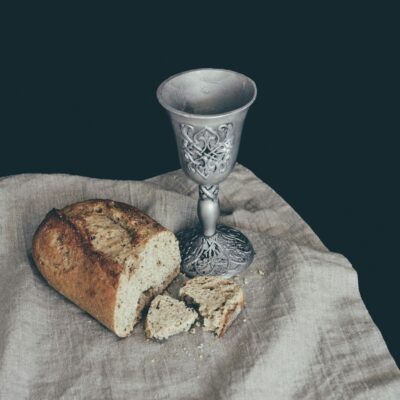Christian Living
Lord’s Day 21 (Questions 54–56) centers on the holy catholic church, the communion of saints, and the forgiveness of sins, highlighting Christ’s work through His Spirit in building and sustaining His people. Below, we explore each question, summarizing its significance and tying it to the theme of Christ’s redemptive work in His church.
This article is part of a series. To read the whole series, click here. The Lord’s Supper, a central act of Christian worship, carries deep theological significance, connecting to Old Testament practices and shaping the church’s life today. Its roots in Passover, the call to guard the table, and its practical implications reveal its role…
This article is part of a series. To read the whole series, click here. The Lord’s Supper has been understood in diverse ways throughout church history, with different traditions offering distinct perspectives on Christ’s presence in the sacrament. Four primary views—Roman Catholic (transubstantiation), Lutheran (consubstantiation), Zwinglian (memorialism), and Reformed—shape the theological landscape, each addressing how…
This article is part 2 of a series on The Lord’s Supper. Click here for part 1. The Lord’s Supper is a sacred act of worship, deeply rooted in Scripture, that unites believers with Christ and one another. In 1 Corinthians 11:17–34, the Apostle Paul provides crucial guidance on the meaning and practice of this…
This article is part of a series. To read the whole series, click here. The doctrine of the Lord’s Supper invites believers to explore its significance within the framework of the sacraments. The Westminster Confession of Faith, Chapter 27, Section 1, defines sacraments as “holy signs and seals of the covenant of grace, immediately instituted…
Dear friends, picture Jesus in the temple, tables overturned, merchants scrambling, as He proclaims, “Is it not written, ‘My house shall be a house of prayer for all the nations’? But you’ve made it a den of robbers” (Mark 11:17; Isa. 56:7; Jer. 7:11). God’s temple was to shine, calling every people to worship Him.…
“It is easier for a camel to go through the eye of a needle than for a rich person to enter the kingdom of God.” Mark 10:23-25, ESV Whether the rich young ruler ever repented of his idolatry in loving God more than his wealth is unknown (see Mark 10:22). However, we do know that issues…
In 1948, the famous Harvard social historian Pitirim Sorokin wrote an essay in which he sounded an alarm about the rapid disintegration of the stability of the American culture. In this essay, Sorokin pointed out that in 1910 the divorce rate in America was ten percent. Yet from 1910 to 1948, the rate of divorce…
Apologetics has been broadly defined as the vindication of the Christian philosophy of life against the various forms of the non-Christian philosophy of life. This definition pairs well with the practical admonition given by the apostle Peter to “always [be] prepared to make a defense to anyone who asks you for a reason for the…
Throughout church history, there have been perhaps few issues that have led to as many disputes as the sacraments. We’ve seen debates over how many sacraments there are, how these sacraments operate, how they are to be performed, who is to receive them, and so on. There has been much confusion and conflict. Although we…









